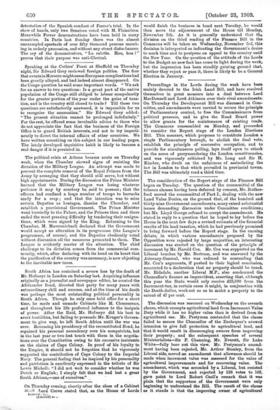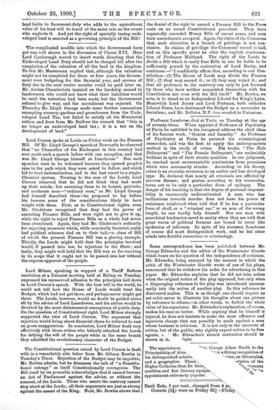The discussion was resumed on Wednesday on the seventh clause,
which exempts agricultural land from Increment Value Duty while it has no higher value than is derived from its agricultural use. Mr. Pretyman contended that the clause failed to secure the Chancellor of the Exchequer's avowed intention to give full protection to agricultural land, and that it would result in discouraging owners from improving their property; and the subsequent speeches of several ilinisterialiste—Sir F. Charming, Mr. Everett, Sir Luke White—fully bore out this view. Mr. Pretyman's amend- ment having been rejected, Mr. Arthur Stanley, from the Liberal side, moved an amendment that allowance should be made when increment value was assessed for the value of agricultural improvements and for recovering value. The amendment, which was seconded by a Liberal, but resisted by the Government, and rejected by 218 votes to 102, gave point to Lord Robert Cecil's remark that it was plain that the supporters of the Government were only beginning to understand the Bill. The result of the clause as it stands is that the improving owner of agricultural
land liable to Increment-duty who adds to the agricultural vidue of his land will be taxed at the same rate as the owner who neglects it. And yet the right of specially taxing unde- veloped land is asserted as a governing principle of the Bill!











































 Previous page
Previous page